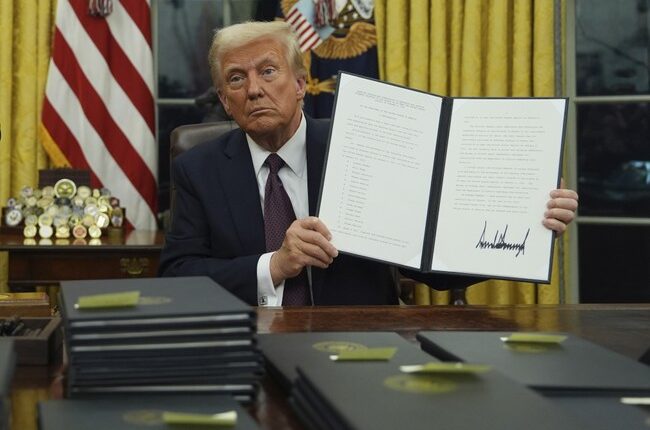
President Trump recently signed an executive order that brings various “independent” boards, commissions, and agencies under the direct supervision of the White House. The order emphasizes the importance of holding officials accountable to the American people and ensuring they are under the oversight of the elected President. This move aims to enhance control over executive power and decision-making processes.
According to a document shared with The Washington Post, White House officials highlighted the need to regulate “so called independent agencies,” such as the FTC, FCC, and SEC. The objective behind this executive order is to exert more influence over these agencies perceived as operating independently. The order seeks to address concerns about “rogue agencies” and their impact on policymaking.
The document emphasized how these agencies formulate rules and regulations that have substantial financial implications and address controversial policy issues without the direct involvement or approval of the elected President. Additionally, they manage taxpayer funds, establish priorities, and set performance standards without consulting the President. The executive order aims to address these issues by centralizing oversight and control within the White House.
The new order has several points. First, it does not apply to the Federal Reserve. I think Trump’s strategists believe that having the White House take control of the Fed might be a bridge too far.
This order shall not apply to the Board of Governors of the Federal Reserve System or to the Federal Open Market Committee in its conduct of monetary policy. This order shall apply to the Board of Governors of the Federal Reserve System only in connection with its conduct and authorities directly related to its supervision and regulation of financial institutions.
The formerly independent agencies must clear all regulations through OMB.
Moreover, all executive departments and agencies, including so-called independent agencies, shall submit for review all proposed and final significant regulatory actions to the Office of Information and Regulatory Affairs (OIRA) within the Executive Office of the President before publication in the .
The White House will have a rep in every agency, “The heads of independent regulatory agencies shall establish a position of White House Liaison in their respective agencies. Such position shall be in grade 15 of the General Schedule and shall be placed in Schedule C of the excepted service. ”
The White House, not agencies, will provide interpretation of the law. This, in particular, is going to stop agencies like the EPA from using their interpretation of the law to increase their regulatory power.
The President and the Attorney General, subject to the President’s supervision and control, shall provide authoritative interpretations of law for the executive branch. The President and the Attorney General’s opinions on questions of law are controlling on all employees in the conduct of their official duties. No employee of the executive branch acting in their official capacity may advance an interpretation of the law as the position of the United States that contravenes the President or the Attorney General’s opinion on a matter of law, including but not limited to the issuance of regulations, guidance, and positions advanced in litigation, unless authorized to do so by the President or in writing by the Attorney General.
There are several legal fights underway as this over-arching order is issued. The White House is seeking to invalidate federal statutes that limit the ability of the president to fire any appointed officer for any reason: see and .
If this order sticks, Trump has permanently and fundamentally changed the Executive Branch as it has existed since 1935 in less than a month.

















